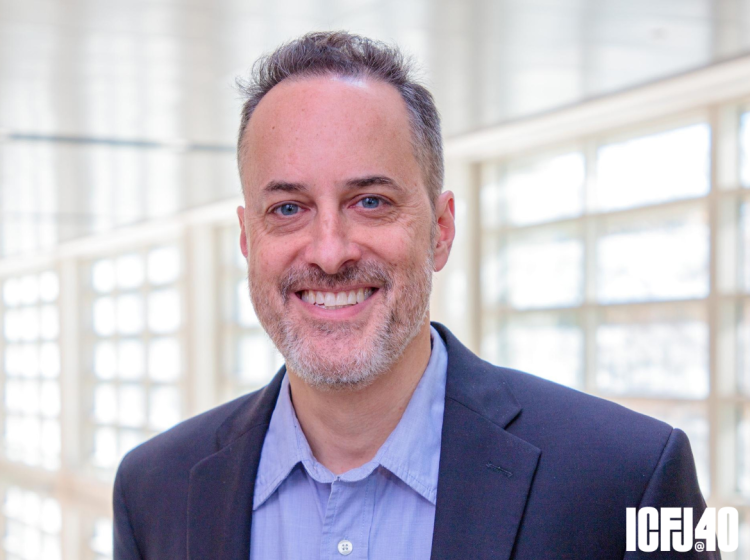Derek Willis is a lecturer in data and computational journalism at the University of Maryland’s Philip Merrill College of Journalism. Previously, he was a data journalist with a variety of outlets, including The Washington Post, The New York Times and ProPublica.
Through ICFJ programs, he has taught journalists around the world, and helped them gain practical skills to further their careers.
This interview has been edited slightly.

How have you been involved with ICFJ over the years?
I’ve been a trainer for ICFJ for about a year, teaching data journalism to journalists and students from North Macedonia, Georgia and Latin American nations. I was able to visit North Macedonia in December 2023 to help with a three-day training that included hands-on instruction on finding and analyzing data, visualization and artificial intelligence. In other instances, I’ve provided in-person trainings in Washington D.C. for visiting journalists and via Zoom.
Why is it so important right now to provide the kind of support to journalists that ICFJ does, especially on data journalism?
We live in a world where data is an increasingly important element in understanding the institutions around us, from governments to businesses and even sports teams. ICFJ plays an essential role in helping journalists improve their skills, but also in providing the contacts and discussions that make it easier for them to grow as reporters. This is particularly true in parts of the world where governments use data to advance their own agendas; journalists are a critical part of a civil society that provides analysis and context to the public.
What’s the most impactful/meaningful story that you’ve worked on in your career?
I’ve been very fortunate to work on some really impactful work during my career, and perhaps the most meaningful one was the collective reporting by ProPublica on the U.S. government’s response to the COVID-19 pandemic. We built and published a searchable database of recipients of a major federal assistance program, tracked federal contract spending and reported stories about waste, fraud and abuse in those programs. Because my colleagues saw the federal response as a systemic topic, we were able to tell readers detailed stories about what their government was doing. Our work prompted a series of investigations.
Why did you choose to become a journalist?
The short answer is that I have always loved the process of finding out new information. When I learned as a kid that there were people who did that for a living, I was hooked. I also firmly believe that informed people govern themselves better.
What’s one piece of advice you’d give to an aspiring journalist?
Always, always ask questions.
Is there anything you would like to add?
There are so many ways to be a journalist today, and that’s a huge opportunity, even if the economics of journalism are very difficult. People need accurate information to help them navigate their lives, and we should not forget that.